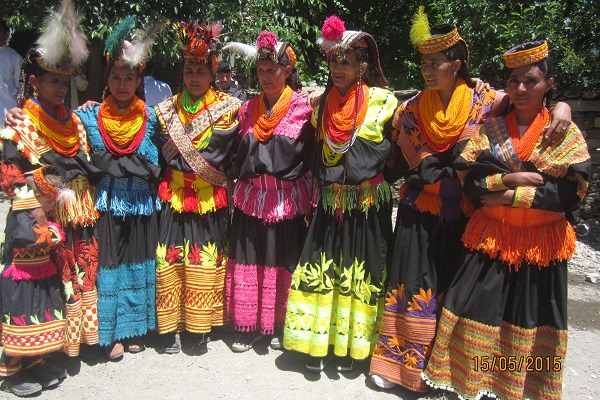S'IS'AU ADUA (18 December). The day of women’s purification with s'is'au (pure bread).
The 18th December is a cleansing day for all women and girls. In order to be purified they must first wash their clothes thoroughly in the river and then themselves all over inside the cold December waters of the river as well as comb their hair plaiting it into five plaits, the cu'i. Meanwhile, early in the morning of 18 December, a man from each family will have washed himself by diving into the river, defying the cold, and put on freshly washed clothes. Then rolling up his sleeves he will wash two pots in the river (filling the smaller one with spring water) and will take them to the goat shed half-covered roof, the darano, where he will make six t'at'ori for each woman or girl of his family.
The ritual of purification is performed in the open air near the goat shed as follows: After washing the women’s hands one by one, pouring from a distance the water he had brought from the river, the man hands in to them five t'at'ori each. Then he lights a juniper branch for each woman and swaying it all around her head, he purifies her with the smoke. From the 6th t'at'ori of each woman, he cuts off three pieces and pours them onto the fire for the gods. What follows is the purification of the goat sheds with juniper smoke.
In the evening the c'el'ik sambiek preparations will start. As many as 350 t'at'ori will be baked to be distributed to all the villagers in the following morning, that is on the gos'nik copa “the morning when a child is dressed the Kalasha costume for the first time”.




